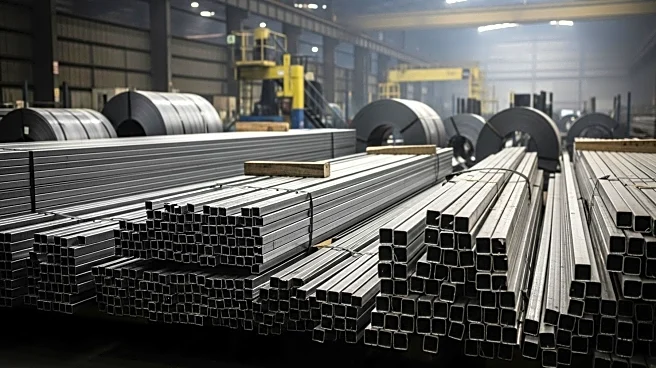What's Happening?
The U.S. Department of Commerce has announced plans to impose new steel import taxes on ten countries, including South Africa, Brazil, and Canada. This decision follows findings of unfair pricing and government subsidies in these nations' steel industries. The taxes, known as anti-dumping and countervailing measures, aim to protect U.S. steelmakers from foreign competitors selling products below market prices or benefiting from unfair subsidies. The measures cover $2.9 billion in imports and are pending a determination of injury to the domestic steel industry by the International Trade Commission (ITC). If the ITC confirms injury, the Commerce Department will issue the orders.
Why It's Important?
The imposition of these taxes could significantly impact the cost of imported steel for U.S. buyers, potentially leading to higher prices for automobiles, appliances, and construction materials. This move is part of a broader protectionist agenda under President Trump, which has seen similar tariffs and investigations targeting other nations. The decision could strain trade relations with affected countries and impact their economies, particularly those heavily reliant on steel exports. For U.S. steelmakers, this could level the playing field, but for industries dependent on steel imports, it may increase operational costs.
What's Next?
The ITC's determination will be crucial in deciding whether the taxes will be implemented. If confirmed, affected countries may seek to negotiate or retaliate, potentially leading to further trade disputes. U.S. industries reliant on steel imports may need to adjust their supply chains or absorb higher costs, which could affect pricing and competitiveness. The broader implications for international trade relations and domestic economic policy will depend on the outcomes of these negotiations and any subsequent actions by the U.S. government.









